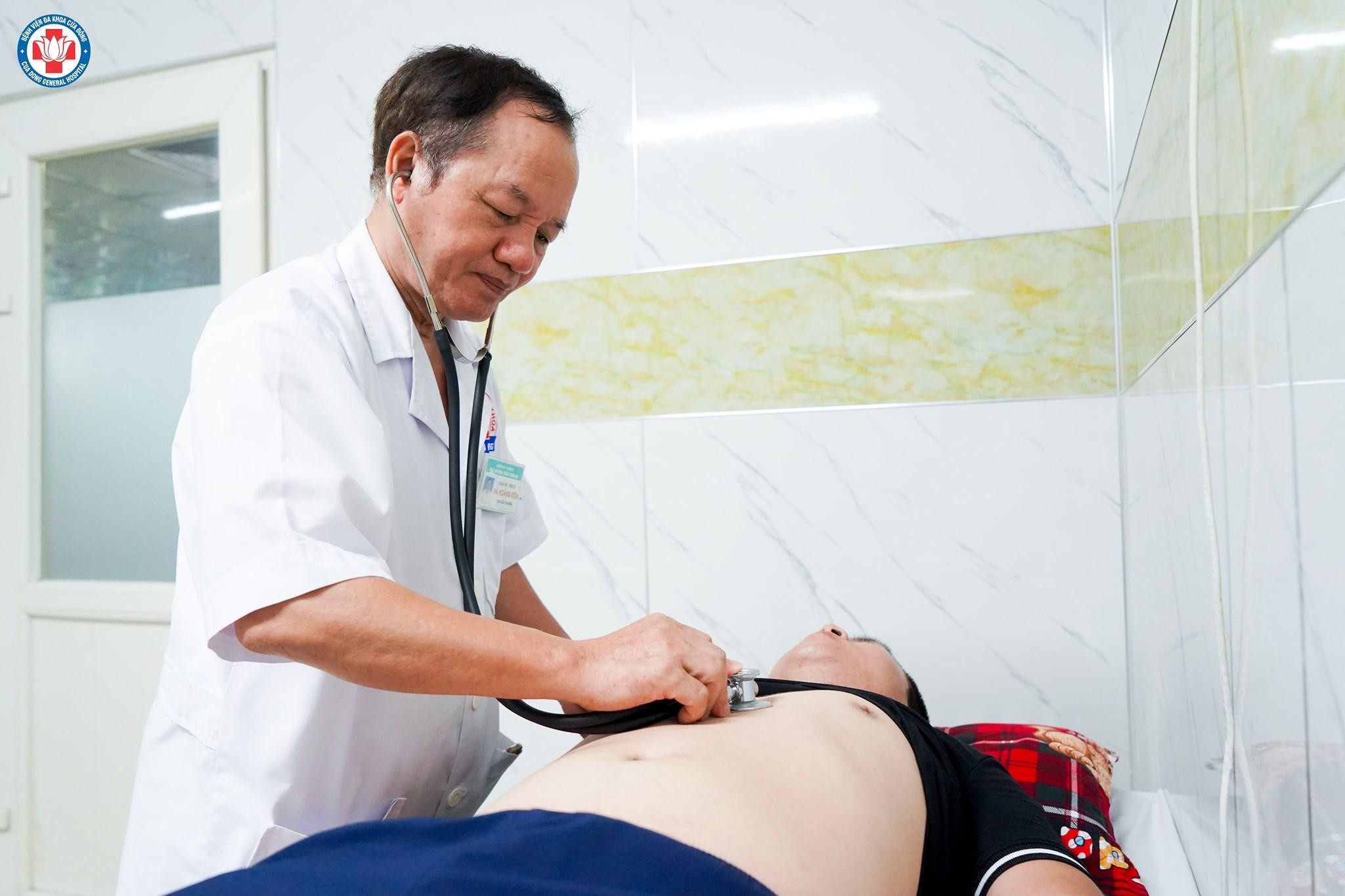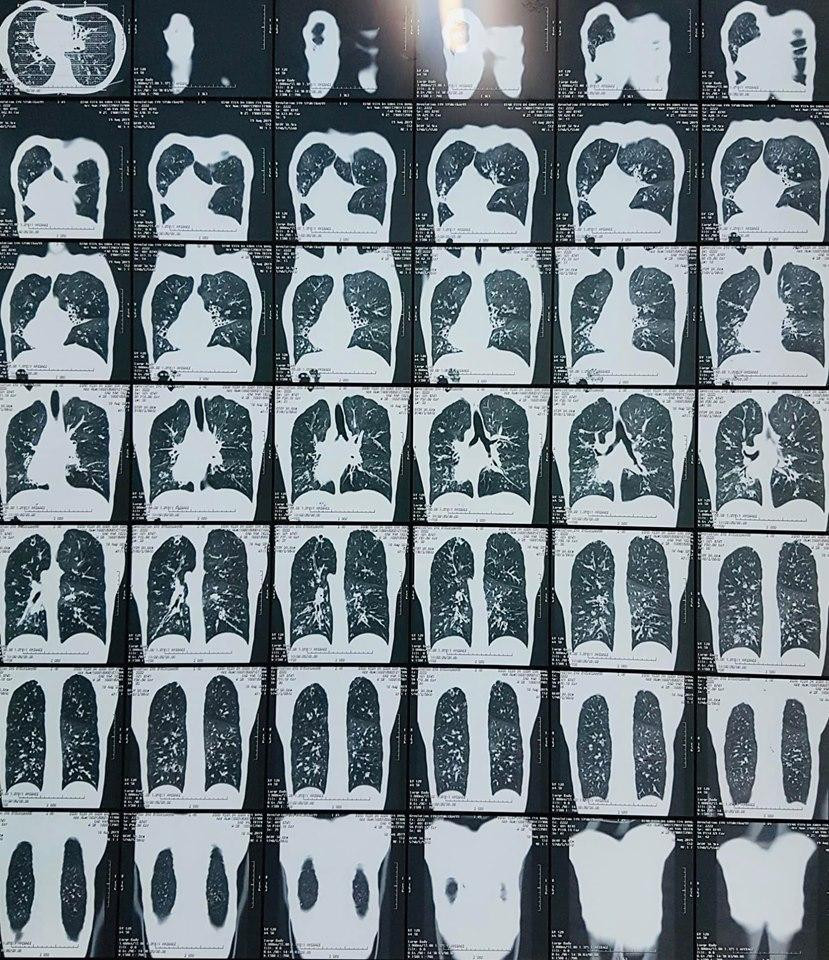Young man discovered to have rare genetic syndrome, causing organ position to be reversed
(Baonghean.vn) - Recently, experts from the leading Professor Clinic at Cua Dong General Hospital discovered a rare disease - Kartagener syndrome.
Patient Cao Van Tr (25 years old, Can Loc, Ha Tinh) came to the hospital for examination with difficulty breathing, coughing, unable to cough up phlegm, coughing up a little blood... Previously, he had been treated at another hospital in Ho Chi Minh City and had just been discharged from the hospital for 1 week but the disease relapsed.
 |
Associate Professor Ha Hoang Kiem examines a patient at the Leading Professor Clinic of Cua Dong General Hospital. Photo: Cao Phuong |
From the above clinical signs, Associate Professor Ha Hoang Kiem examined and prescribed paraclinical tests, X-rays and 128-slice CT scans.
Through the paraclinical results, the Associate Professor diagnosed the patient with a rare disease - Kartagener syndrome. This is a rare genetic syndrome with symptoms: Diffuse fusiform bronchiectasis, visceral inversion, sinusitis, nasal polyps...
Mr. Tr.'s case had complete internal organ displacement: heart to the right, liver to the left, spleen to the right, aorta to the right, diffuse tubular bronchiectasis.
 |
| CT scan results of patient Cao Van Tr. |
Associate Professor Ha Hoang Kiem said that Kartagener syndrome is a rare genetic disorder; related to abnormalities of the cilia system, which can cause a series of health problems. This syndrome is also related to situs inversus.
Currently, there is no cure for Kartagener's syndrome. Treatment includes controlling symptoms and reducing the risk of complications; improving quality of life.
Kartagener's syndrome with classic symptoms and signs: primary ciliary dyskinesia (PCD), respiratory infections, sinus infections, frequent ear infections, chronic nasal congestion, and situs inversus.
Therefore, when there are symptoms of the disease, patients should go to the doctor and get treatment to avoid dangerous complications./.
